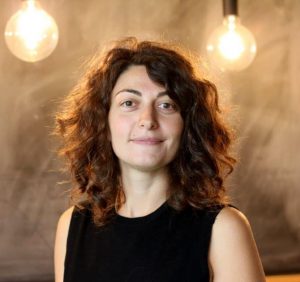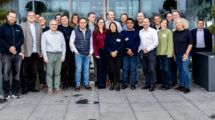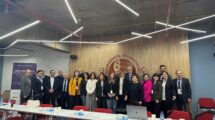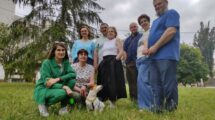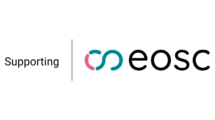In April 2024, GÉANT’s CEO Erik Huizer embarked on a week-long tour through the South-East Europe (SEE) region to meet key partners of local Research and Education Networks, strengthen their role with funding ministries and explore new avenues for collaboration.
This extensive journey covered over 1200 kilometres, five countries, four GÉANT member organisations and engaged more than twenty Bosnian-Herzegovinian stakeholders. GÉANT’s CEO was chaperoned by the GÉANT project regional coordinator Anastas Mishev and supported by GÉANT’s partner relation manager for the SEE region, Marina De Giorgi.
In the first part of the story, Marina detailed visits in Serbia and Bosnia Herzegovina, the SEE Forum and GÉANT Info-day. In this second part, the group visits Montenegro, stops by in North Macedonia and ends up the journey in Kosovo*.
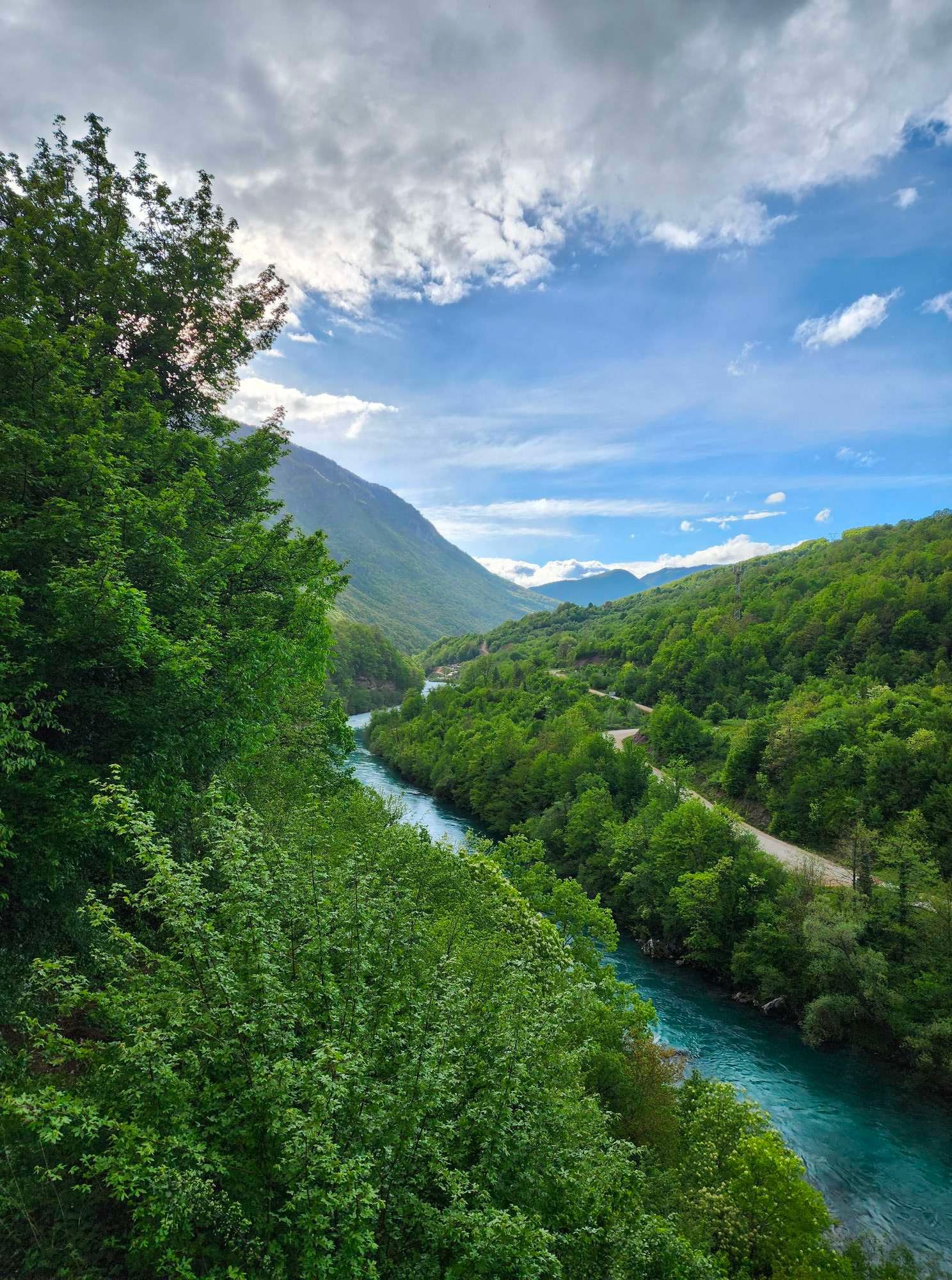
Day 4 (morning and afternoon): Montenegro – Close synergies in Podgorica
With a refreshing night’s sleep behind us, our small GÉANT team headed to the University of Montenegro in Podgorica to meet the team of the local NREN, MREN. Pleased to host us, the rector Vladimir Božović welcomed us and attentively listened to GÉANT’s CEO, as he introduced the GÉANT mission and vision. We were then left in the capable hands of Enis Kocaj and Bozo Krstallijc, the most recently appointed coordinator and Chair of the Board of MREN, who in turn introduced us to Srna Sudar, responsible of the university’s international office, and Balša Femić responsible for the university’s IT department. The amicable and informal atmosphere reflected how the NREN works together to ensure that Montenegro is well represented in the European R&E community.
Our visit continued with a high-level meeting with the State Secretary for the Ministry of Education, Science and Innovation of Montenegro, Mrs. Marijeta Barjaktarovic-Lanzardi and her (all-female) team. GÉANT’s CEO introduced and praised the good work done by MREN, to which the Minister responded with news of the recently approved plan for MREN to be the strategic partner in shaping the National Open Science roadmap for Montenegro. All parties at the table welcomed this great achievement as a confirmation of the hard work done by the new MREN leadership in securing a trusted position at a national level.

Despite having supported all meetings throughout the day, Anastas was not tired and – going back to the car – reassured us that we would be in Skopje right in time for dinner!
Day 4 (evening): North Macedonia – Taking a detour in Skopje
This was not an official visit, as – at the time – the North Macedonian NREN MARnet had an interim director and its Board was waiting for the outcome of national elections to be reinstated. Nonetheless, Anastas kept his promises and organised a lovely traditional dinner with project participants from UKIM, and the welcome addition of Eva Nestorovska, task leader in the GÉANT GN5-1 project’s Above-the-Net services team, who recently moved from MARnet to PSNC.

While we enjoyed delicious Macedonian dishes and spinach-filled pastries, we discussed how – despite its small size and number of staff – MARnet has distinguished itself in time for having a very active role in the GÉANT community. The conversation also touched upon political elections and possible outcomes and scenarios. One thing was clear: that MARnet’s efforts wouldn’t be reduced under any political circumstances.
Day 5: Kosovo* – KREN, Building a solid Education
Once again, on our last day we had to get up very early… This time, for a meeting with the Minister of Economy of Kosovo* Artane Rizvanolli and her (again, all-female!) team, scheduled in the morning to fit in the busy agenda. GÉANT’s CEO took the opportunity to compliment the impressive advancements of the Kosovo Research and Education Network (KREN) since its launch in November 2022, and the development of KREN’s services in such a short lifespan. Well aware of KREN’s accomplishments, the Minister moved the discussion toward planning future plans and activities.
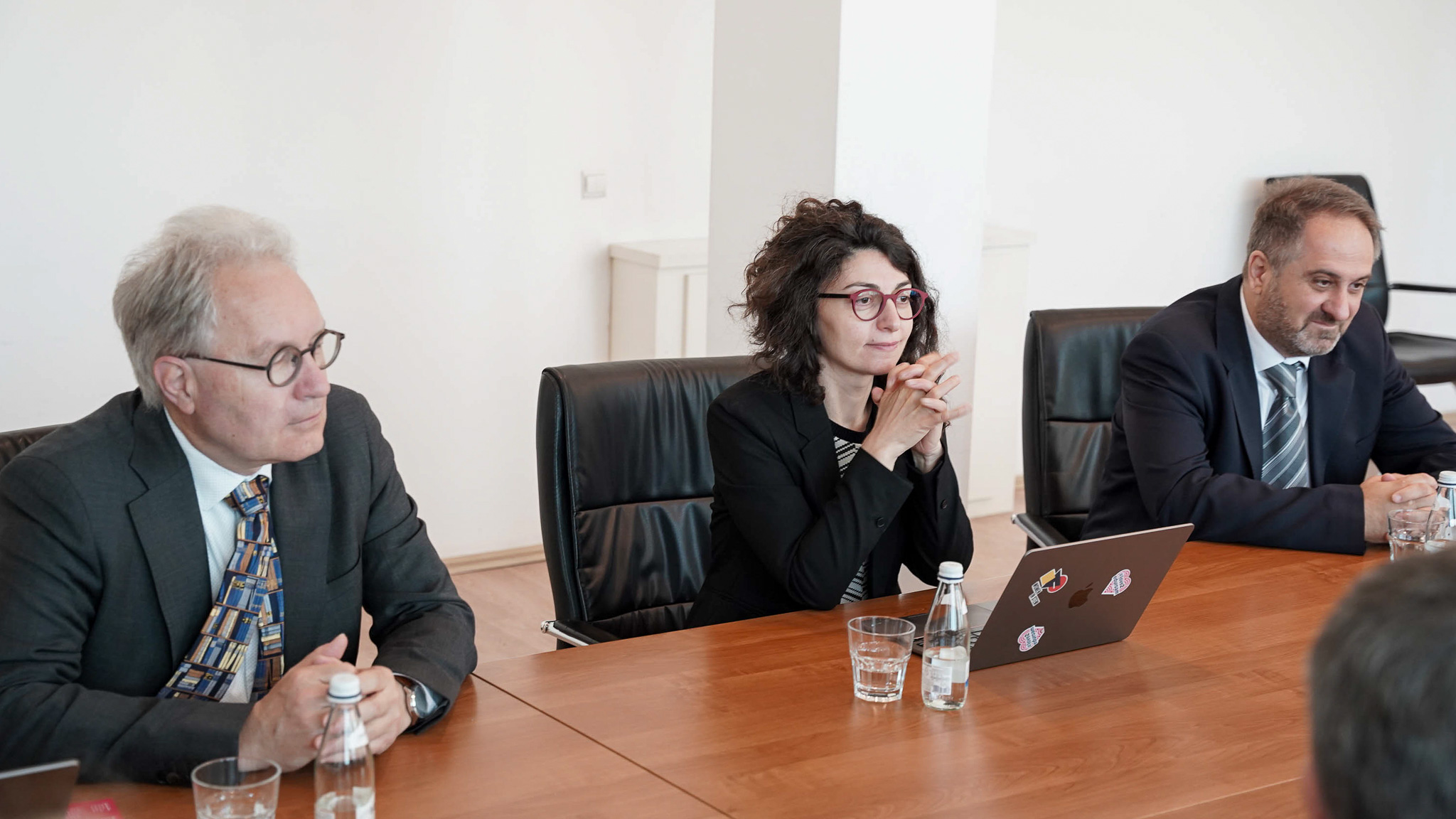

The conversation followed in the municipality of Shtime, where we joined the celebration for the connection of 100 local schools to KREN’s high-speed network, together with the Minister of Economy and the Minister of Education, Science and Technology, World Bank representatives, representatives of KREN and of the Kosovo Project for Digital Economy (KODE) project. They highlighted the importance of Kosovo’s young and tech-savvy population, as a valuable asset for developing innovative solutions. Invited on stage, GÉANT’s CEO reinforced the message that Education is the basis for a bright and innovative future and that KREN should continue to work closely with their government to make sure that its initial drive keeps momentum.
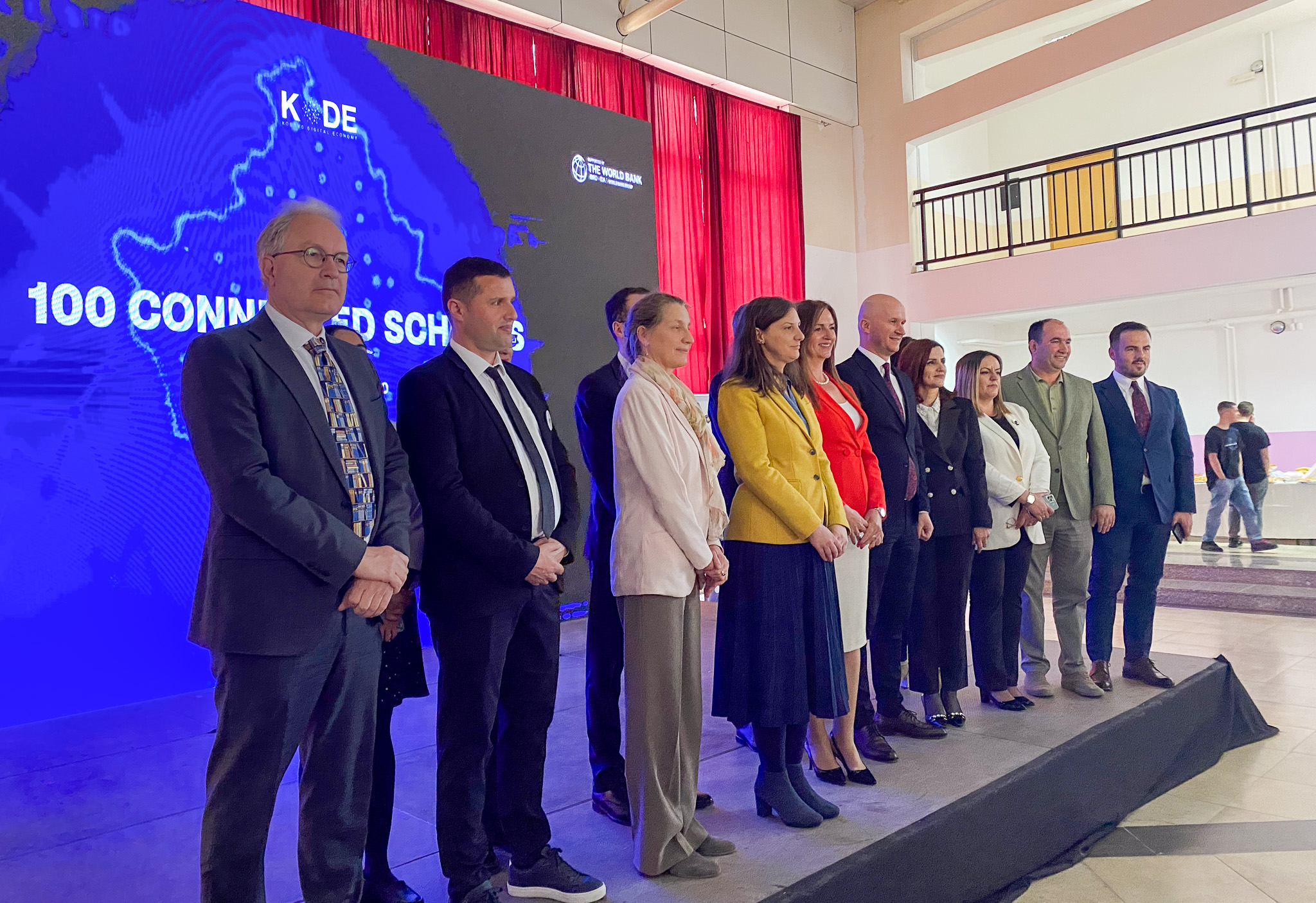
Exhausted but happy and satisfied, we closed the celebration and that also marked the end of our visit to the SEE region. We all departed towards our final destination: home!
Conclusion: A Vision for the Future
Our journey in the South-East Europe region not only reinforced existing relationships among SEE organisations and GÉANT’s commitment in supporting them but also laid the groundwork for sustainable growth of SEE partners, community development and enlargement of the GÉANT Association towards Bosnia Herzegovina.
As we move forward, the GÉANT community will need to consider the specificities of the SEE region and their difficulties as non-EU members, increase effort in bridging the digital divide, value the strength of SEE organisations and increasingly involve them in jointly contributing to the overall GÉANT mission of supporting open innovation, collaboration and knowledge-sharing amongst our members, partners and the wider research and education networking community.
Read the first part of this travel report of our journey in the SEE Region, covering visits in Serbia and Bosnia Herzegovina, the SEE Forum and GÉANT Info-day: https://connect.geant.org/2024/07/24/geants-ceo-visit-in-south-east-europe-strengthening-re-collaboration-in-the-region-and-supporting-colleagues-in-bosnia-herzegovina-part-1
*This designation is without prejudice to positions on status and is in line with UNSCR 1244/1999 and the ICJ Opinion on the Kosovo declaration of independence.

